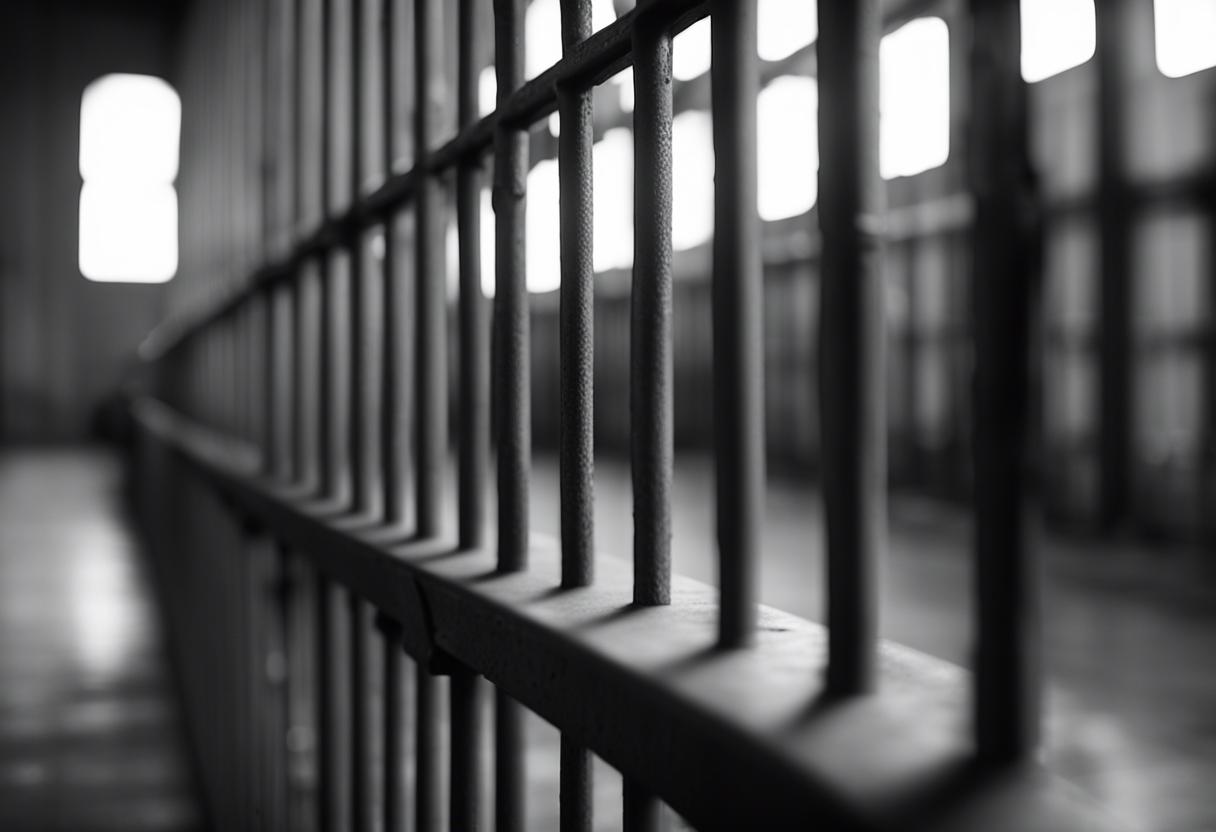A report issued by Israeli human rights body B’Tselem criticises Israel’s alleged practice of random detentions of Palestinians, as well as allegations of improper treatment and torture conducted in both military and civilian prison facilities crowded with prisoners. These alleged actions have been escalating since the onset of the Gaza conflict, sparked by a Hamas attack on Israel on October 7th.
Interviews were conducted with 55 released prisoners for the report, which indicated a significant decline in conditions following the start of the Gaza skirmish. Out of those interviewed, 30 hailed from the occupied territory of West Bank, 21 were Gaza residents, and four were Palestinian nationals living in Israel. B’Tselem points out that majority of these individuals were discharged without undergoing trial. The report highlights the diverse backgrounds of these detainees, ranging from medical professionals, academics, and lawyers, to students, children, and political figures. Some were reportedly detained for showing empathy towards the Palestinian cause, others were men of eligible fighting age and the rest were suspected members of paramilitary outfits. The common link tying all of them together, per B’Tselem, appears to be their Palestinian heritage.
Claims of ill-treatment compiled by B’Tselem include grave instances of unwarranted violence, sexual exploitation, humiliation and degradation, wilful deprivation of food, imposition of unsanitary conditions, sleep deprivation, religious restrictions, confiscation of personal and shared possessions, and refusal of proper medical care.
Acknowledging the report, the Israel Defence Forces (IDF), responsible for operating a number of these detention centres, insisted that they adhered to legal protocols and any singular allegations of abuse would be looked into. The IDF vehemently repudiated systematic accusations of abuse, including those of a sexual nature, at their facilities and reassured that necessary supervision measures were in place to ensure proper law enforcement. Meanwhile a spokesperson for the Israel Prison Service stated that every prisoner is treated as per law, and basic rights were fully ensured by highly trained guards.
The spokesperson has stated that they are not conscious of the allegations described and, to their understanding, no such incidents have occurred under the jurisdiction of IPS. They reassured that all complaints from internees would be thoroughly reviewed and probed.
In the era preceding the conflict, the bespoke figure of Israeli-held “security prisoners” stood at 5,192, with 1,319 of these subjected to open-ended administrative detention, bereft of trial or defence privileges. Fast forward to early July, the population of such detainees had surged to 9,623, with 4,781 amongst them classified as administrative detainees. According to reports by B’Tselem, the previous ten months saw an influx of new Palestinian arrests held for variable durations, then set free without indictment.
B’Tselem alleged that this systematic, approved policy operates under the guidance of national security minister Itamar Ben Gvir, and enjoys the prime minister Binyamin Netanyahu-led government’s full approval. It was Mr. Ben Gvir who initiated the move to deteriorate conditions before the war’s onset, eliminating early release, curbing family visitations, cutting shower durations, denying prisoners food preparation rights or canteen purchases, as per the B’Tselem account.
The postwar era has seen at least 60 Palestinian casualties in custody, including 48 individuals from Gaza. B’Tselem indicated that there are instances where the context suggests deliberate abuse and deferral of medical aid. B’Tselem’s estimate posits that since the Israeli occupation of 1967, around 800,000 Palestinians from the West Bank, East Jerusalem, and Gaza have been confined. Their distress and suffering ebb outwards, impacting their kin, acquaintances, and the community at large, making the Israeli penal system a central element of the Palestinian reality. – Additional information: Reuters

